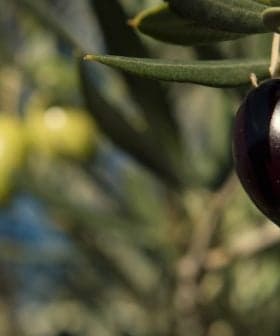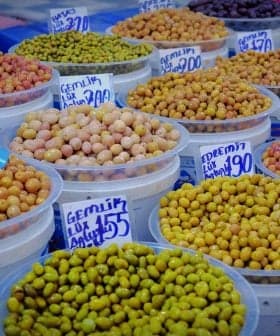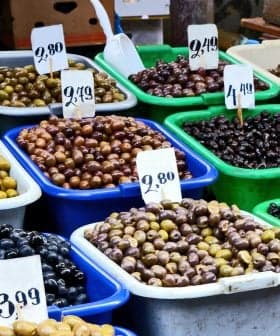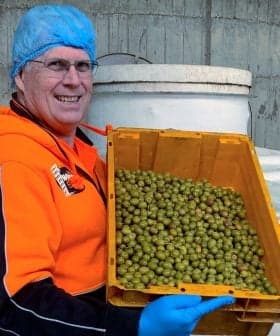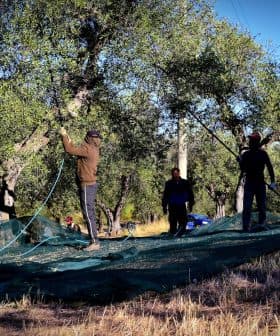Spanish Olive Farmers Concerned Over Possible 'Protectionist' US Measures
European table olive producers are growing concerned over the possibility of facing harsh measures as soon as September.
The U.S. Department of Commerce is investigating whether Spanish olive farmers are dumping their products in the US market and receiving unfair subsidies, potentially leading to sanctions on Spanish olive imports as early as September. American companies Bell-Carter Foods and Musco Family Olive Co. have accused Spanish producers of selling olives at lower prices in the U.S. than in Spain, prompting the investigation by the U.S. International Trade Commission.
The U.S. Department of Commerce has recently launched an investigation to determine whether or not Spanish olive farmers are dumping their products in the US market on top of being unfairly favored by the Common Agricultural Policy program’s subventions and thus violating fair trade laws. European table olive producers are growing concerned over the possibility of facing harsh protectionist measures being readied as soon as of September of this year.
On June 22, 2017, the Coalition for Fair Trade in Ripe Olives (CFTRO) filed a petition regarding possible dumping and unfair subsidization practices being conducted in Spain in favor of domestic olive producers. The Coalition’s members include the American companies Bell-Carter Foods and Musco Family Olive Co., respectively the largest American table olive producer and leading table olive supplier.
See Also:USITC Holds Hearing on Olive Oil Market Conditions
The two companies claimed Spanish table olive producers have been selling at lower prices in the U.S. than their prices in Spain. “Dumped and subsidized Spanish ripe olives are severely impacting our industry,” said the CEO of Bell-Carter Foods, Tim Carter.
Dumping, which is viewed as a means to hurt American producers, is illegal under U.S. law. Moreover, the CFTRO’s members have denounced the fact that Spanish olive producers have been receiving substantial financial aid from the European Union’s Common Agricultural Policy (CAP) program, a subsidy for European farmers that their American counterparts have claimed skews the playing field even more.
The U.S. International Trade Commission has been conducting an official investigation to ponder the legitimacy of the CFTRO’s petition since July 22, 2017. If the government does uncover unfair practices through dumping and subsidization it could announce sanctions on Spanish table olive imports as soon as September of 2017.
An official statement from the Department read: “If the ITC determines that there is a reasonable indication that imports of ripe olives from Spain materially injure, or threaten material injury to, the domestic industry in the United States, the investigations will continue, and the Department will be scheduled to announce its preliminary countervailing duty (CVD) determination in September 2017 and its preliminary antidumping (AD) determination in November 2017, though these dates may be extended. If the ITC’s determinations are negative, the investigations will be terminated.” An exhaustive schedule of the investigation is available on the Department of Commerce’s official website.
The threat of economical penalization has loomed over the Spanish table olive industry since Bell-Carter Foods and Musco Family Olive Co. filed the official petition. And with reason. The two American companies have suggested imports of Spanish olives should be taxed at a rate of 73 percent, to be eventually increased as high as 223 percent. Such figures have pushed Copa-Cogeca, a leading European association of farmers and agri-cooperatives, to qualify them as “protectionist” measures.
Copa-Cogeca Secretary General Pekka Pesonen declared in a letter sent on July 25 to Agriculture Commissioner Phil Hogan, “Copa and Cogeca consider it unacceptable that the main EU agri-food export market – the USA – can impose protectionist measures against our products without justification,” he wrote.
“Copa and Cogeca argue that the only reason Spanish producers can produce black table olives so competitively is due to their efforts to reduce production costs, combined with investment in key issues like quality technology,” he added.
Copa-Cogeca has fiercely denied the claims of unfair economic practices and has stated that imposing high taxes on Spanish olive imports would constitute an unfair treatment of Spanish producers and claim they have always respected fair trade laws set by the World Trade Organization.
Last year, Spanish producers exported nearly 32,000 tons of olives to the United States with a value of $70.9 million.



